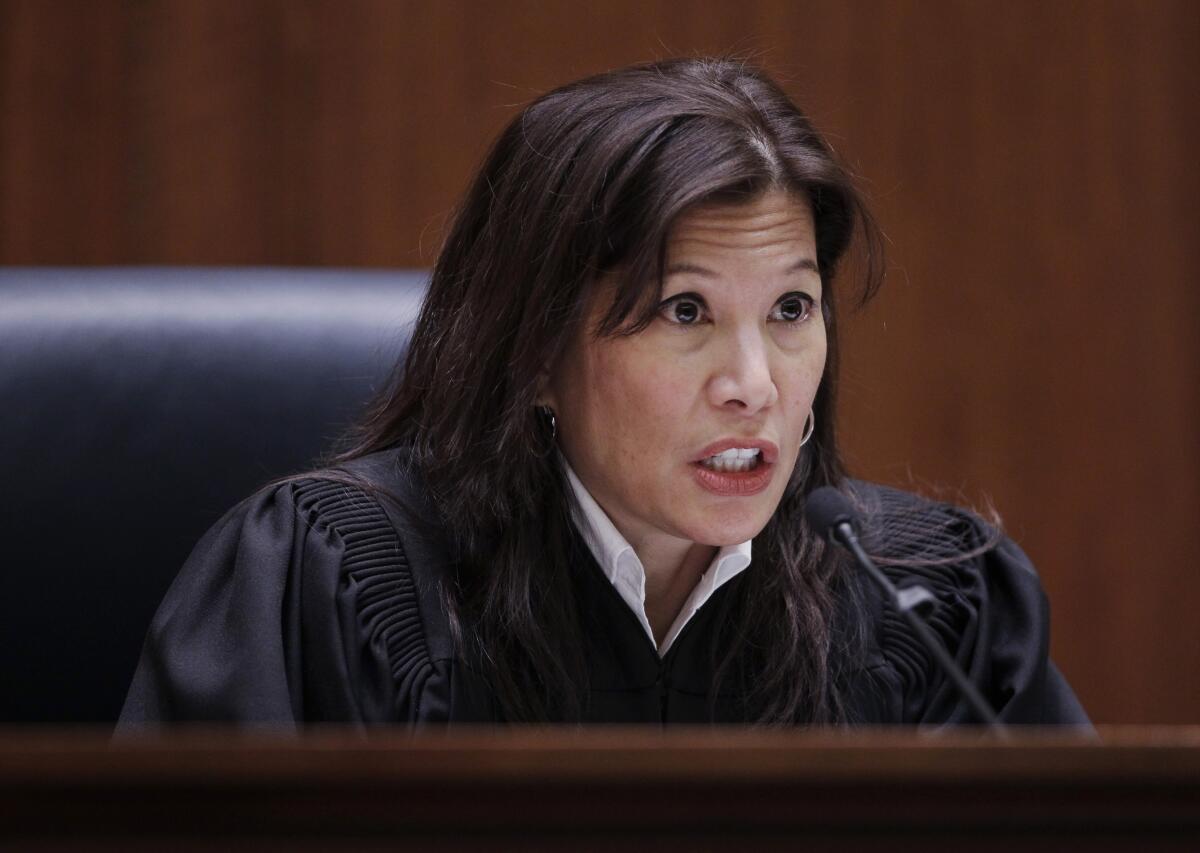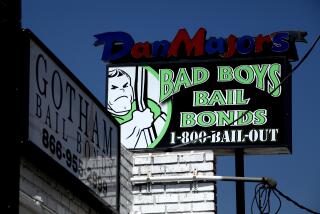Judicial leaders to adopt emergency order to ease jail crowding amid pandemic

- Share via
In a move aimed at reducing the jail population to limit the spread of the coronavirus, California judicial leaders are expected to adopt a statewide emergency order setting bail at zero for misdemeanor and lower-level felony offenses.
In a remote meeting Monday, the Judicial Council also is expected to vote to suspend evictions and foreclosures and to allow for the expansion of court hearings held by video or telephone.
Chief Justice Tani Cantil-Sakauye heads the council, the policymaking body for California’s court system. Gov. Gavin Newsom has given her and the council, which is primarily made up of judges, extraordinary temporary powers to suspend laws to deal with the health crisis.
For criminal and juvenile proceedings, including arraignments and preliminary examinations, the council will direct courts to prioritize the use of technology to meet legal deadlines and ensure that defendants and children are not held in custody without timely hearings, according to a report prepared for Monday’s meeting.
In criminal cases, the defendant must agree before a court hearing can be held remotely.
Orange County Dist. Atty. Todd Spitzer last week called on judicial leaders to issue a statewide order requiring preliminary hearings be held remotely. Orange County Public Defender Sharon Petrosino countered that clients had a constitutional right to appear in person for preliminary hearings.
“During the COVID-19 pandemic,” the report says, “trial courts must protect defendants’ constitutional rights to have the assistance of counsel and to be personally present with counsel, and at the same time take steps to protect the health of defendants, judicial officers, court staff, counsel, and all those who are required to be present in court.”
During preliminary hearings, prosecutors must show there is sufficient evidence to believe a crime has been committed. Defense lawyers say defendants must be able to see the witnesses testifying against them and confer with counsel.
Public defenders have complained that a previous emergency court order extending legal deadlines for arraignments and preliminary hearings have forced their clients to stay in potentially virus-infested jails.
The Judicial Council also is expected to order courts to give juvenile delinquency cases priority.
“Every state and territory in the country has now delayed jury trials,” the report says.
“But courts must provide court access for defendants in custody who are entitled to timely pretrial appearances.”
More to Read
Sign up for Essential California
The most important California stories and recommendations in your inbox every morning.
You may occasionally receive promotional content from the Los Angeles Times.














